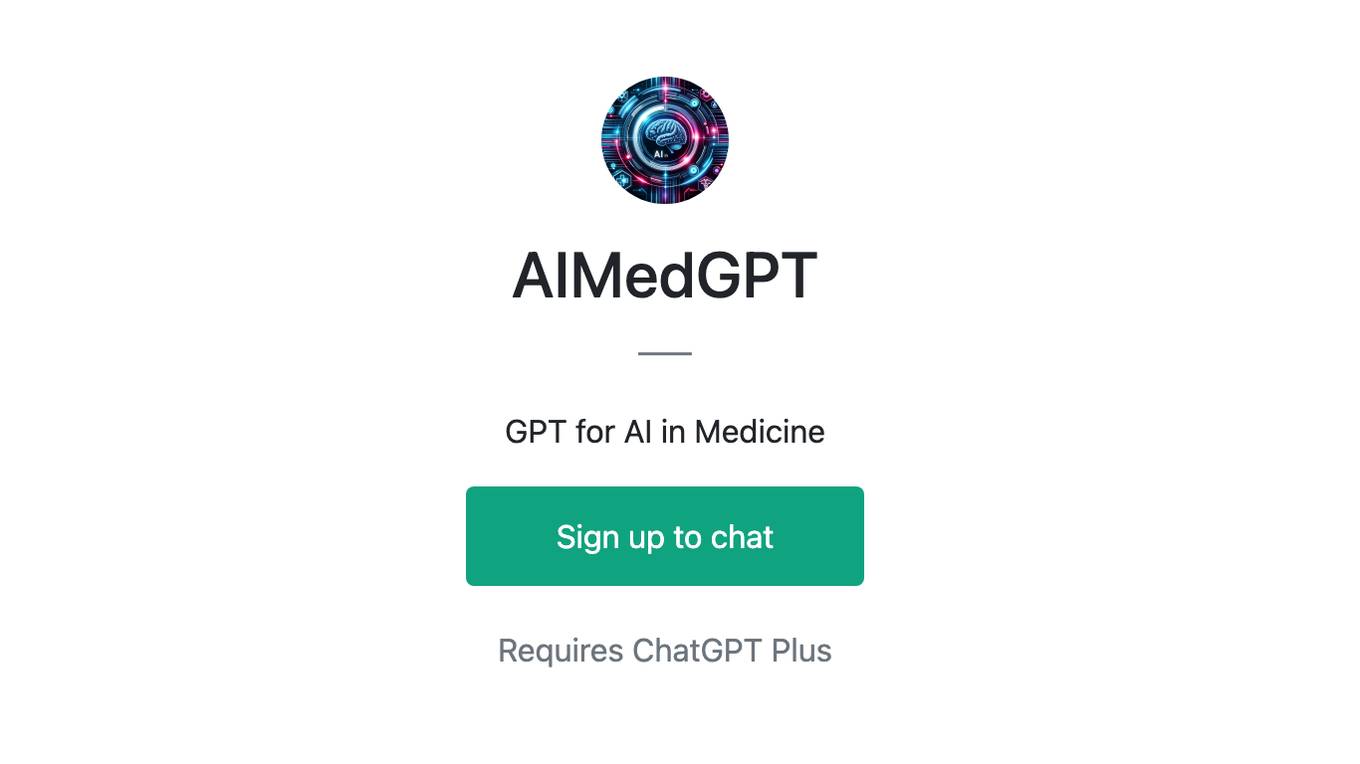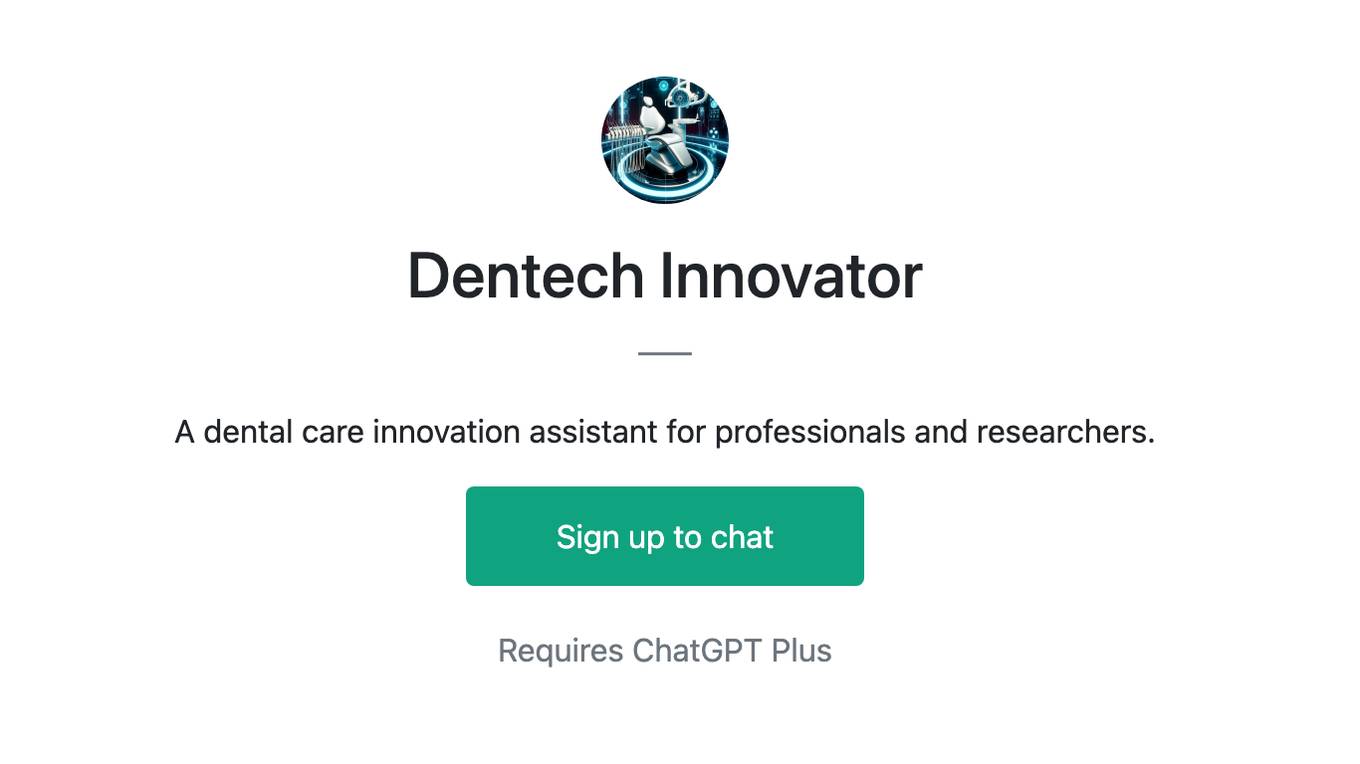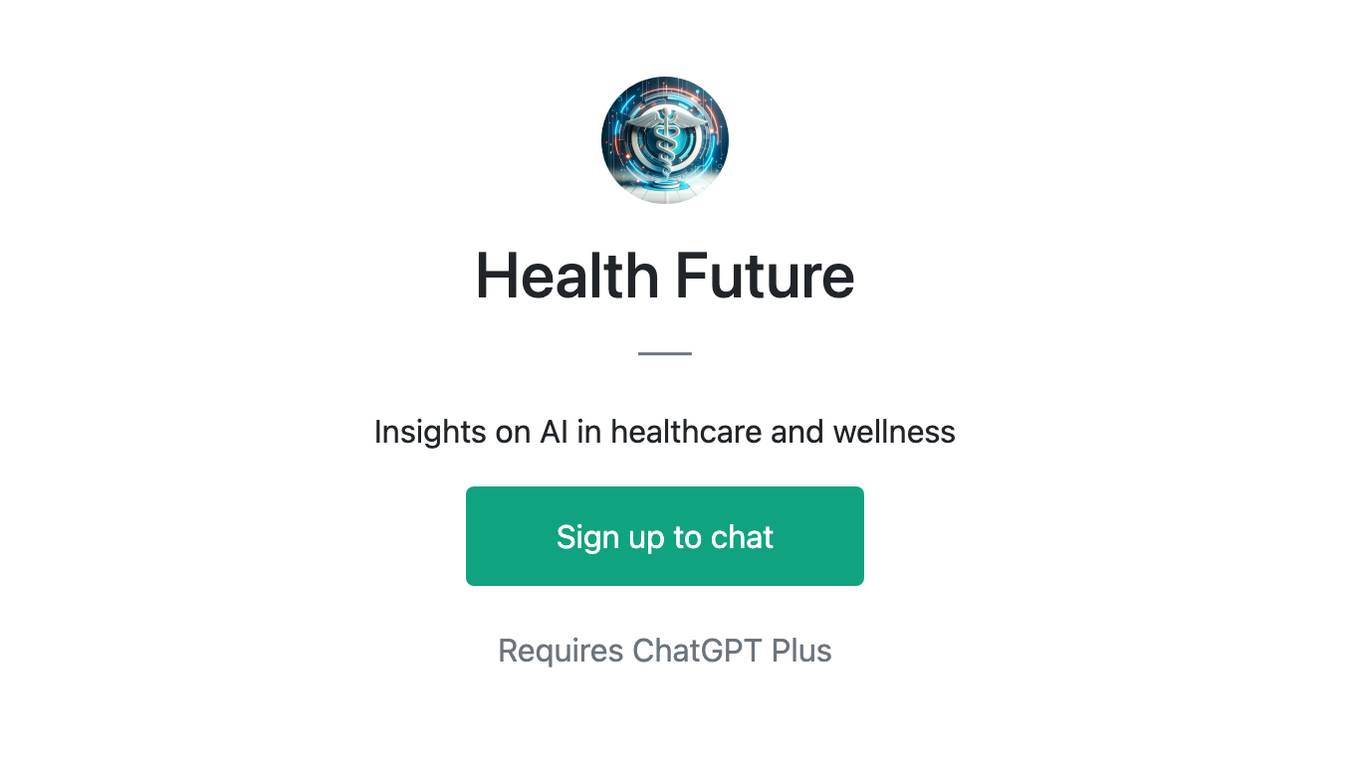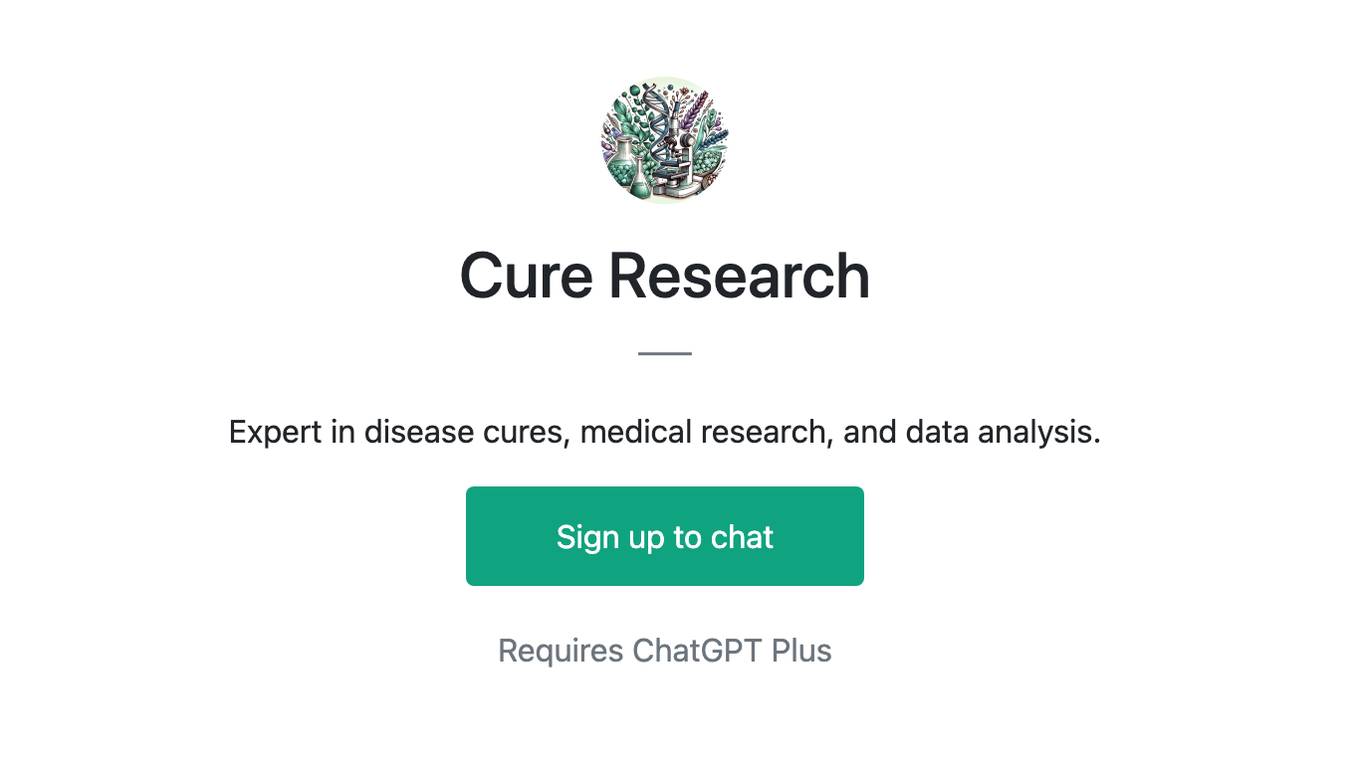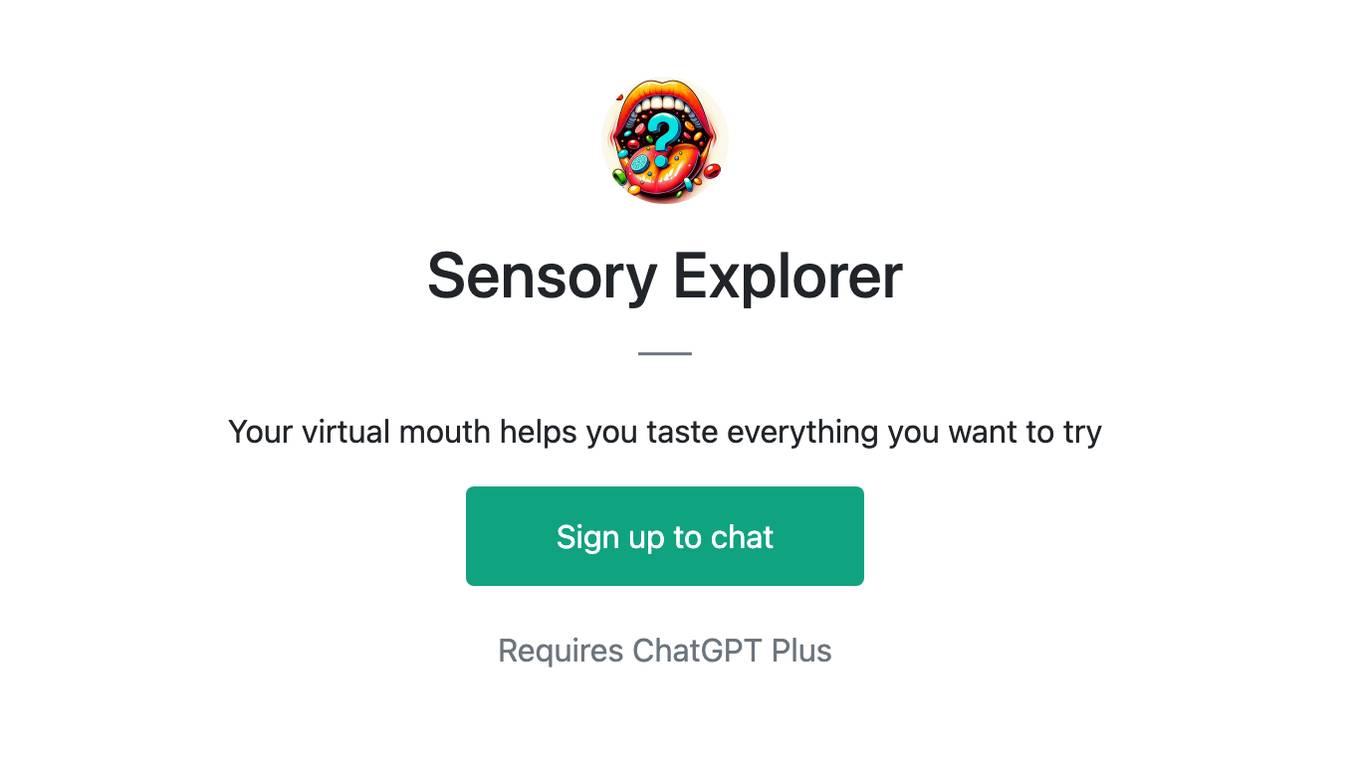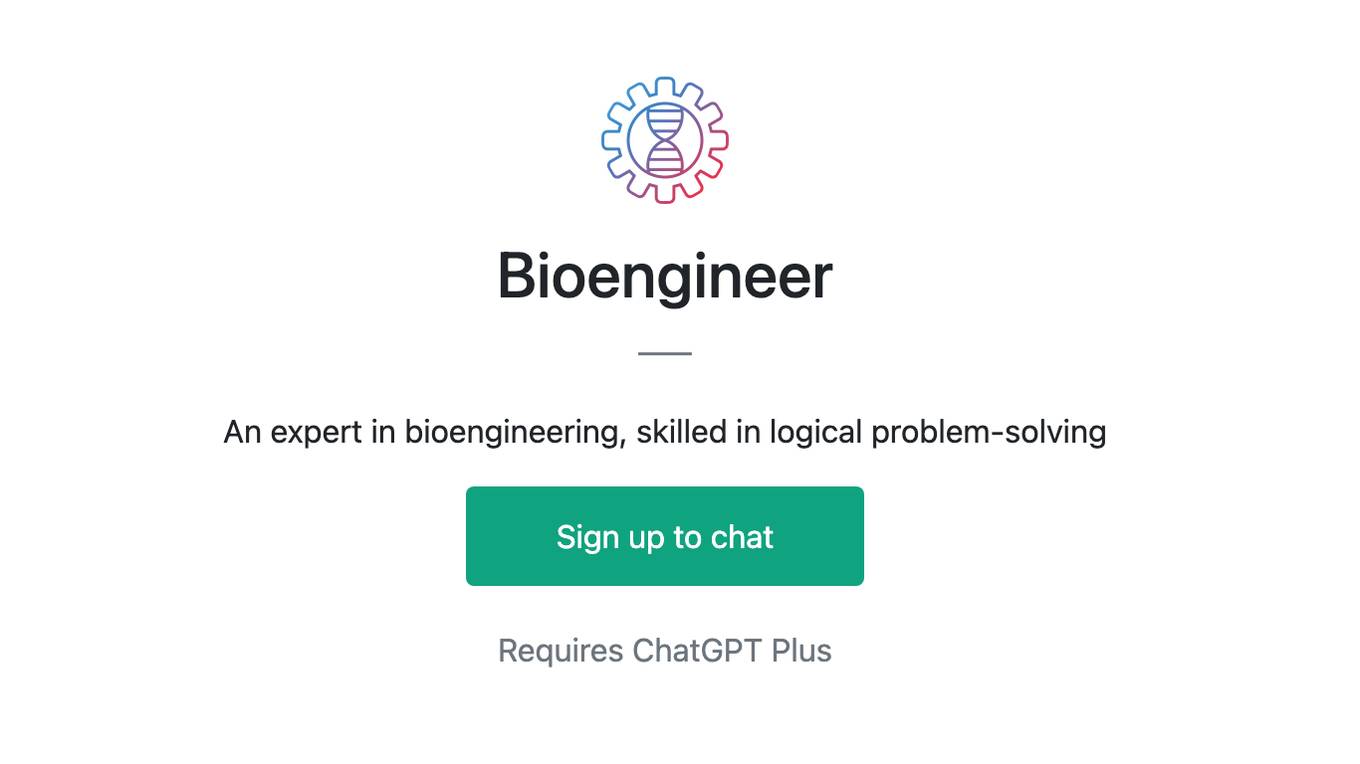Best AI tools for< Develop New Treatments For Parasitic Infections >
20 - AI tool Sites
Beacon Biosignals
Beacon Biosignals provides an EEG neurobiomarker platform that is designed to accelerate clinical trials and enable new treatments for patients with neurological and psychiatric diseases. Their platform is powered by machine learning and a world-class clinico-EEG database, which allows them to analyze existing EEG data for insights into mechanisms, PK/PD, and patient stratification. This information can be used to guide further development efforts, optimize clinical trials, and enhance understanding of treatment efficacy.
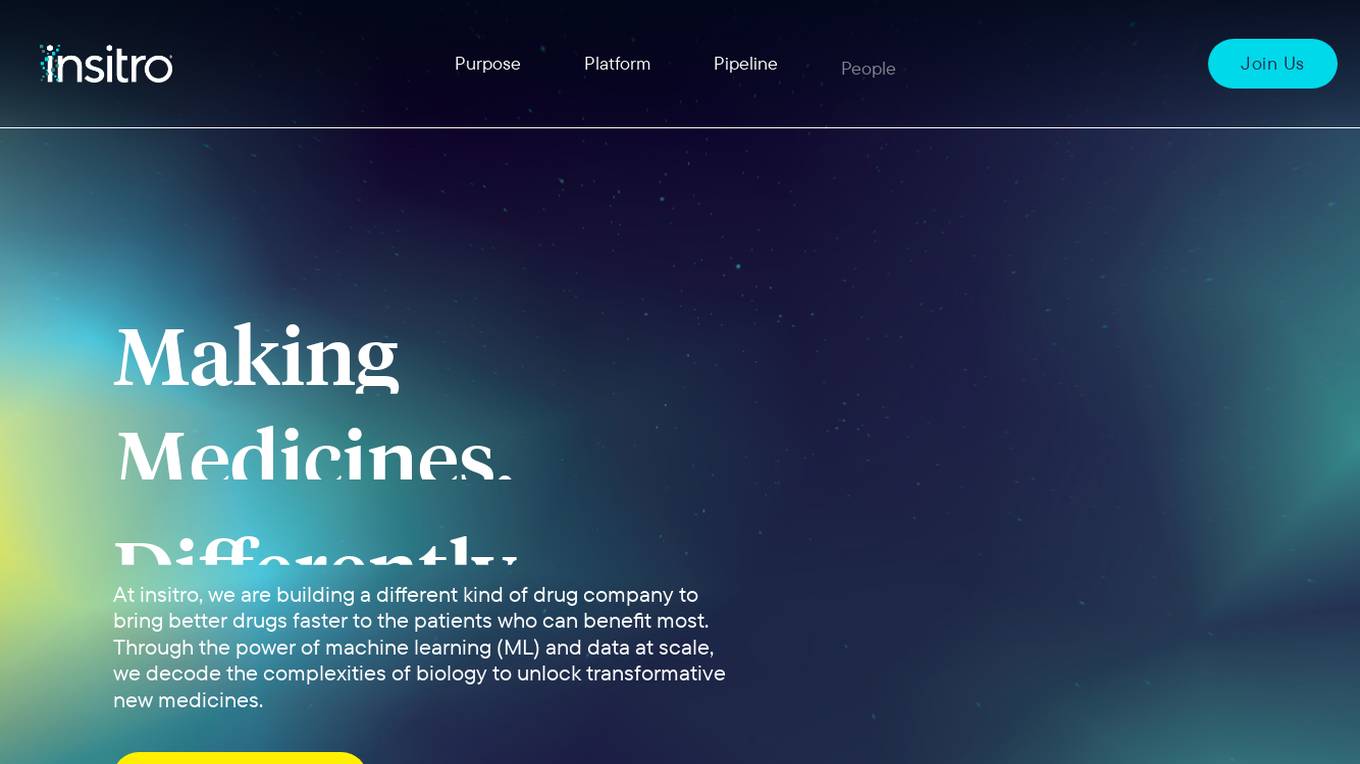
Insitro
Insitro is a drug discovery and development company that uses machine learning and data to identify and develop new medicines. The company's platform integrates in vitro cellular data produced in its labs with human clinical data to help redefine disease. Insitro's pipeline includes wholly-owned and partnered therapeutic programs in metabolism, oncology, and neuroscience.
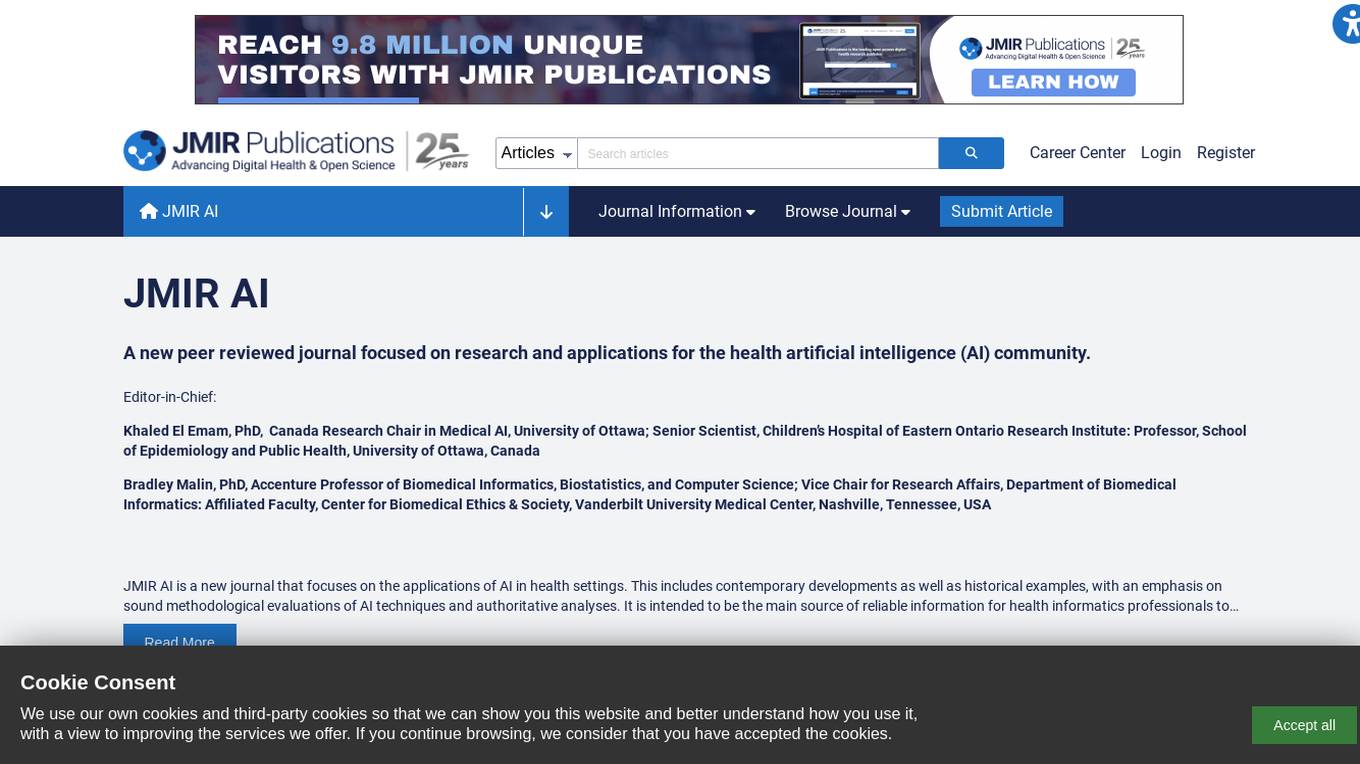
JMIR AI
JMIR AI is a new peer-reviewed journal focused on research and applications for the health artificial intelligence (AI) community. It includes contemporary developments as well as historical examples, with an emphasis on sound methodological evaluations of AI techniques and authoritative analyses. It is intended to be the main source of reliable information for health informatics professionals to learn about how AI techniques can be applied and evaluated.
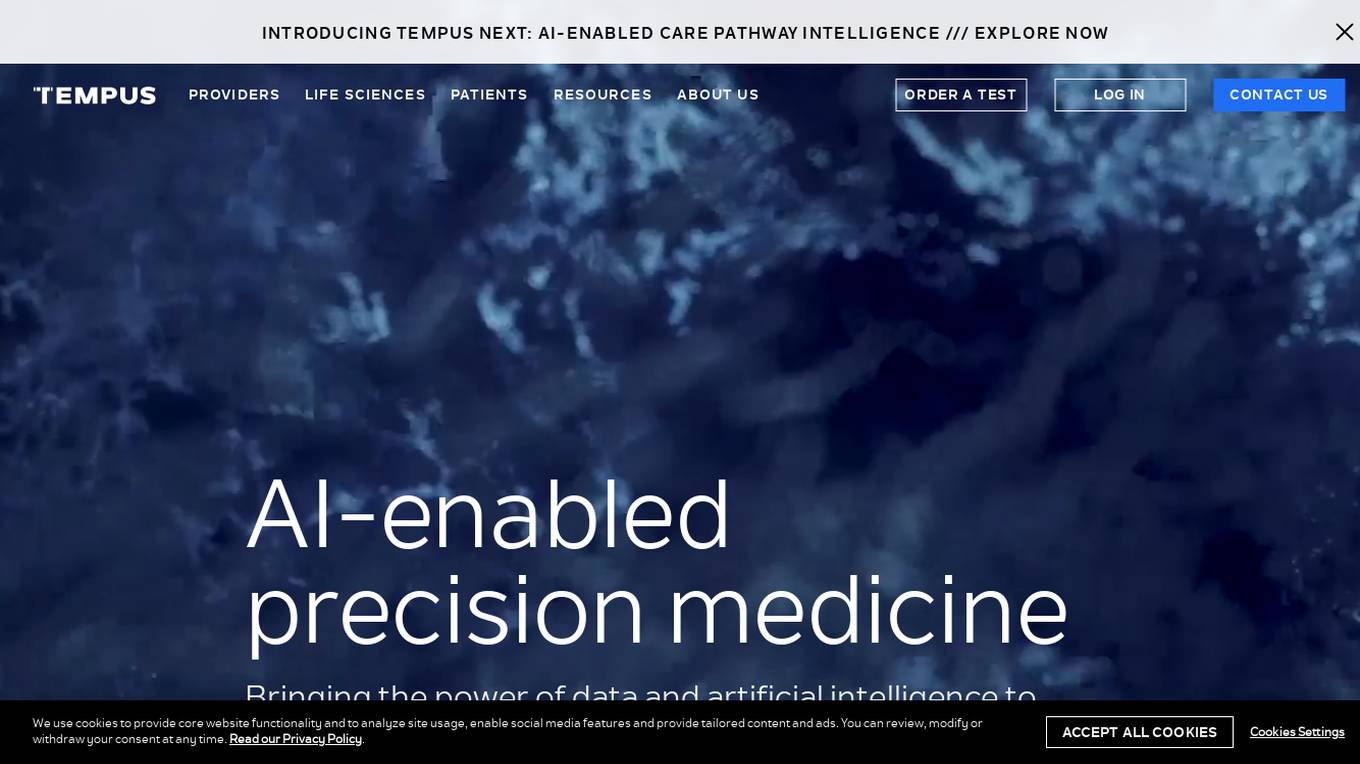
Tempus
Tempus is an AI-enabled precision medicine company that brings the power of data and artificial intelligence to healthcare. With the power of AI, Tempus accelerates the discovery of novel targets, predicts the effectiveness of treatments, identifies potentially life-saving clinical trials, and diagnoses multiple diseases earlier. Tempus' innovative technology includes ONE, an AI-enabled clinical assistant; NEXT, which identifies and closes gaps in care; LENS, which finds, accesses, and analyzes multimodal real-world data; and ALGOS, algorithmic models connected to Tempus' assays to provide additional insight.
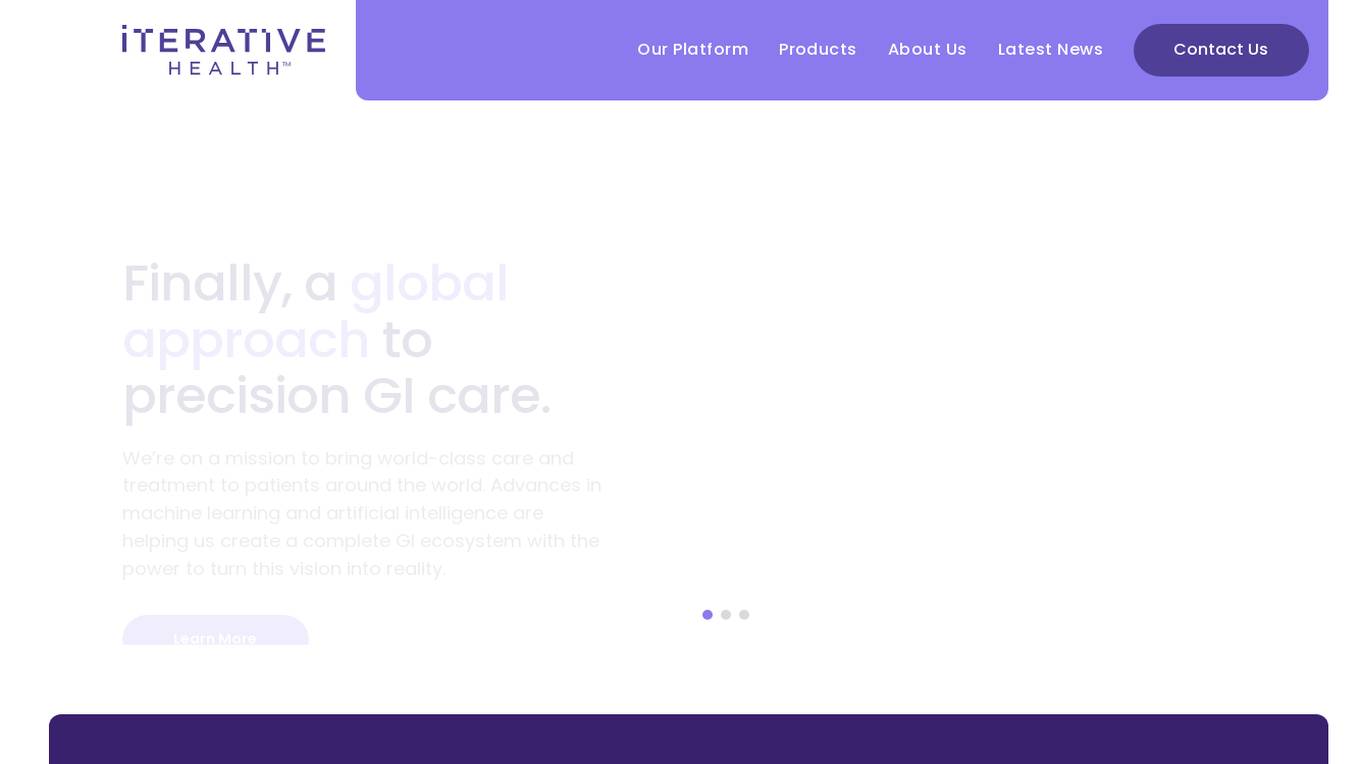
Iterative Health
Iterative Health is a company that is dedicated to providing world-class GI care and treatment to patients around the world. They are on a mission to bring world-class care and treatment to patients around the world. Advances in machine learning and artificial intelligence are helping them create a complete GI ecosystem with the power to turn this vision into reality.
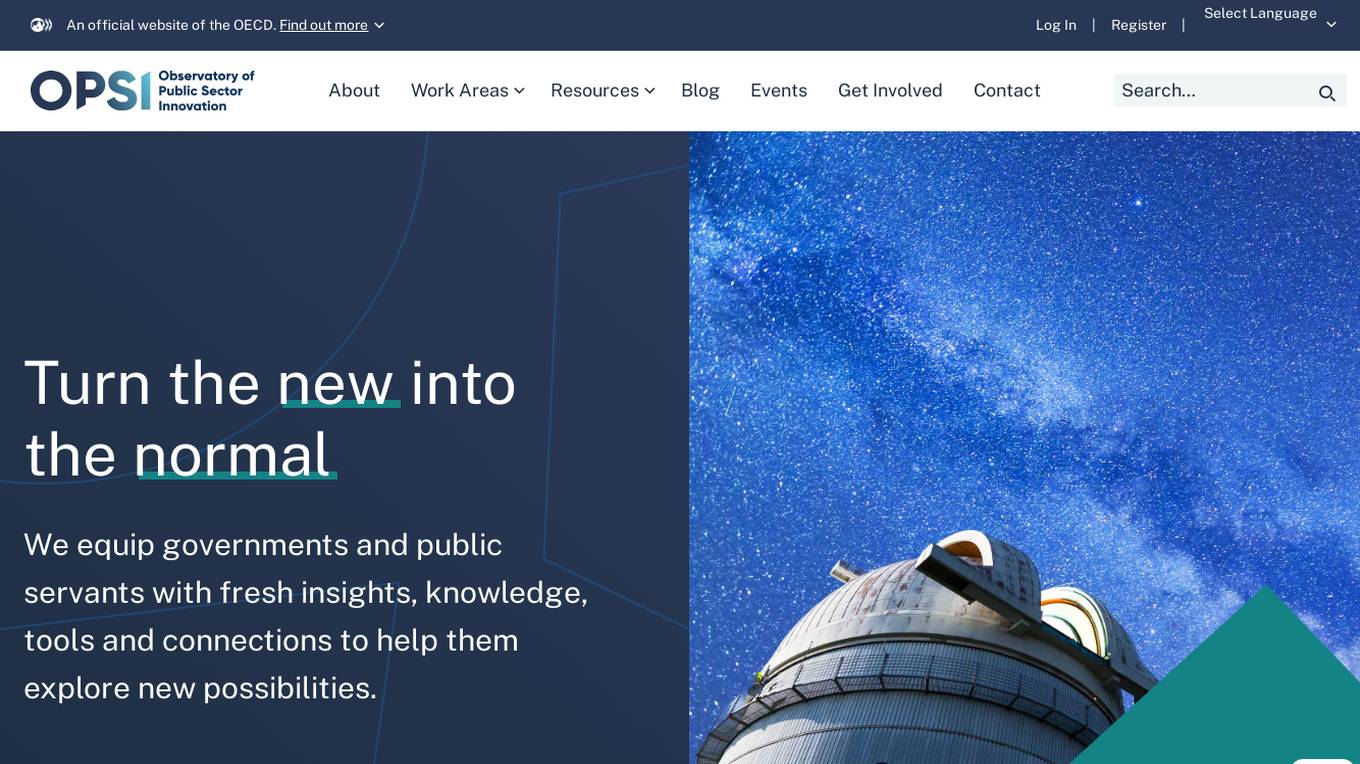
OECD Observatory of Public Sector Innovation
The OECD Observatory of Public Sector Innovation (OPSI) is a website that provides resources and tools to help governments and public servants explore new possibilities for innovation. OPSI's work areas include European Commission Collaboration, Anticipatory Innovation, Cross-Border Government Innovation, Behavioural Insights, Innovative Capacity, Innovation Trends, Innovation Portfolios, Mission-Oriented Innovation, Innovation Management, and Systems Approaches. OPSI also has a number of resources available, including a Toolkit Navigator, Case Study Library, Portfolio Exploration Tool, and Anticipatory Innovation Resource (AIR).
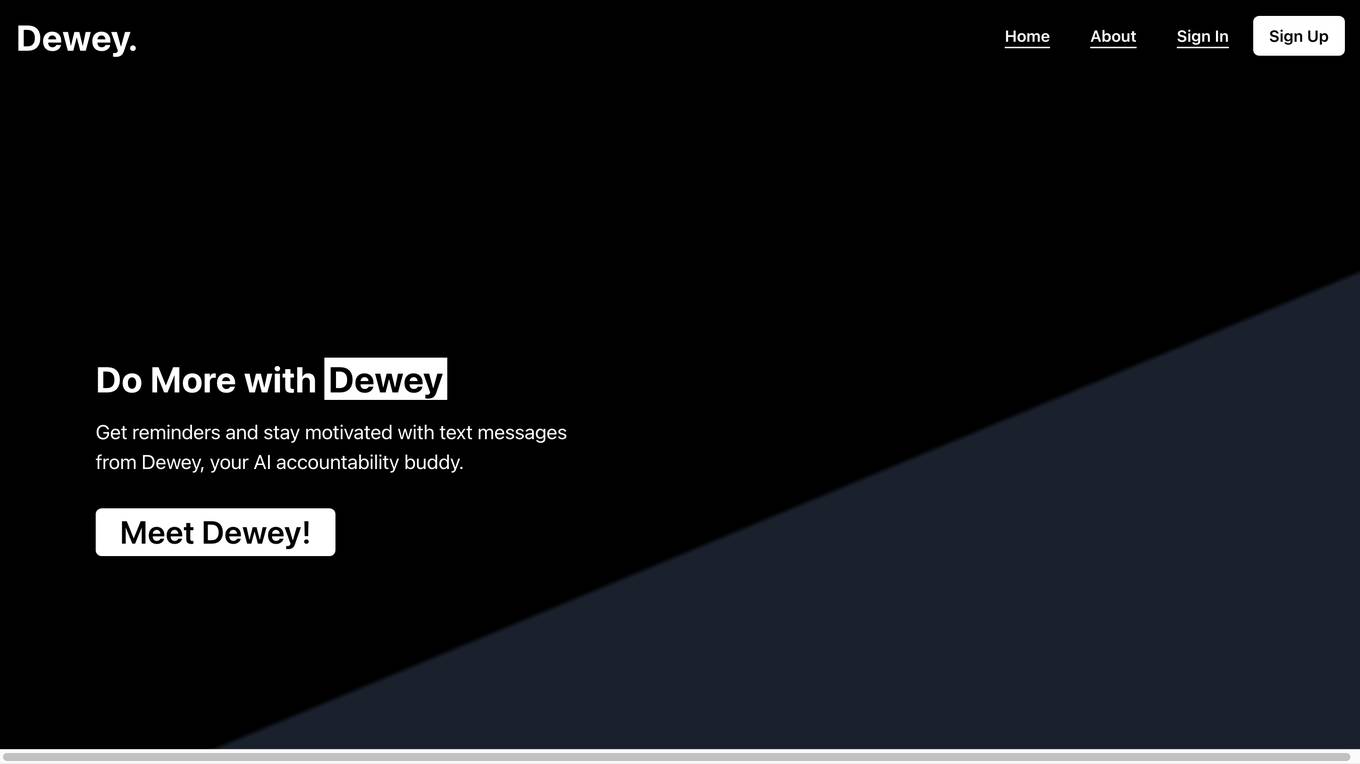
Dewey
Dewey is an AI accountability buddy application designed to help users manage their to-do lists, develop new habits, and stay organized and productive. By sending text message reminders and providing personalized nudges, Dewey aims to assist users in achieving their goals efficiently. The application allows users to converse with their to-do lists, receive reminders, and get answers to simple questions, all through SMS messages. Dewey is a free tool that offers a 'Best Friends' plan for unlimited tasks and additional perks in the future.
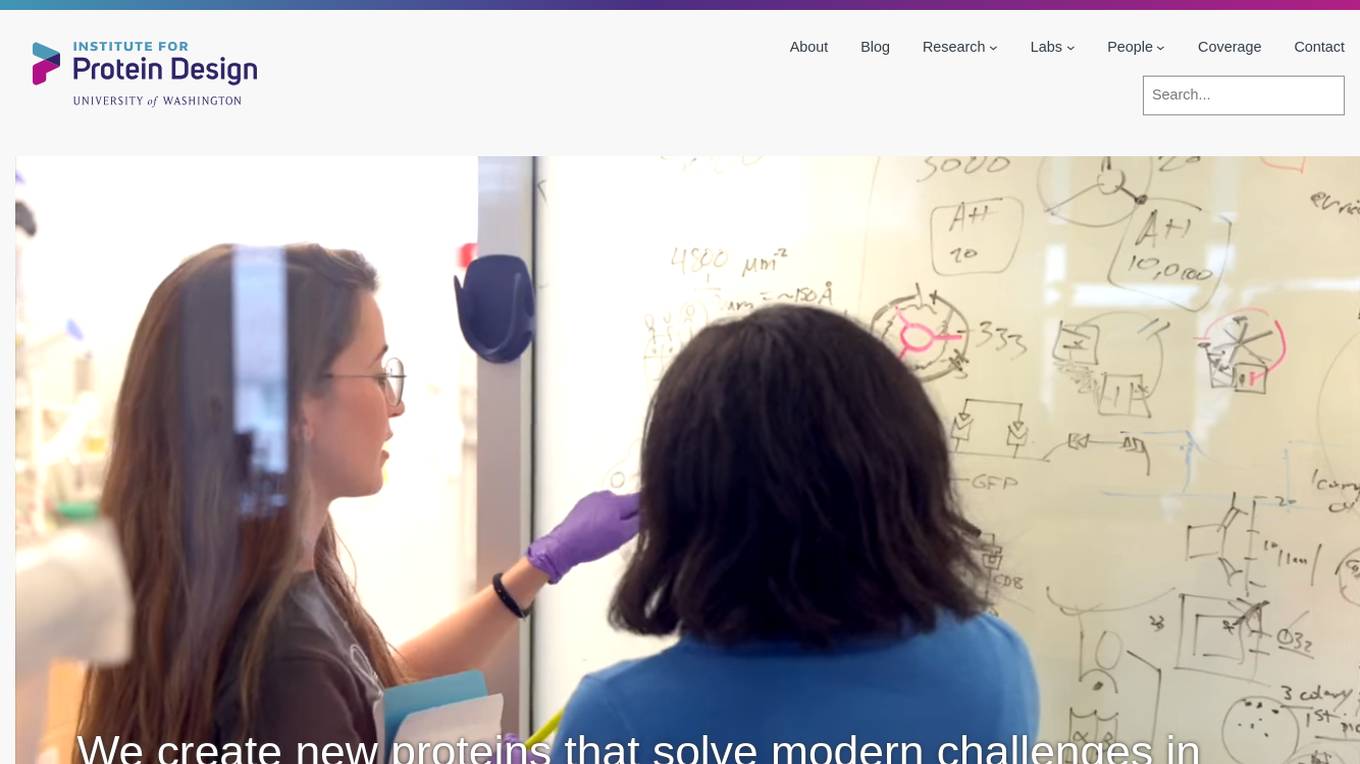
Institute for Protein Design
The Institute for Protein Design is a research institute at the University of Washington that uses computational design to create new proteins that solve modern challenges in medicine, technology, and sustainability. The institute's research focuses on developing new protein therapeutics, vaccines, drug delivery systems, biological devices, self-assembling nanomaterials, and bioactive peptides. The institute also has a strong commitment to responsible AI development and has developed a set of principles to guide its use of AI in research.
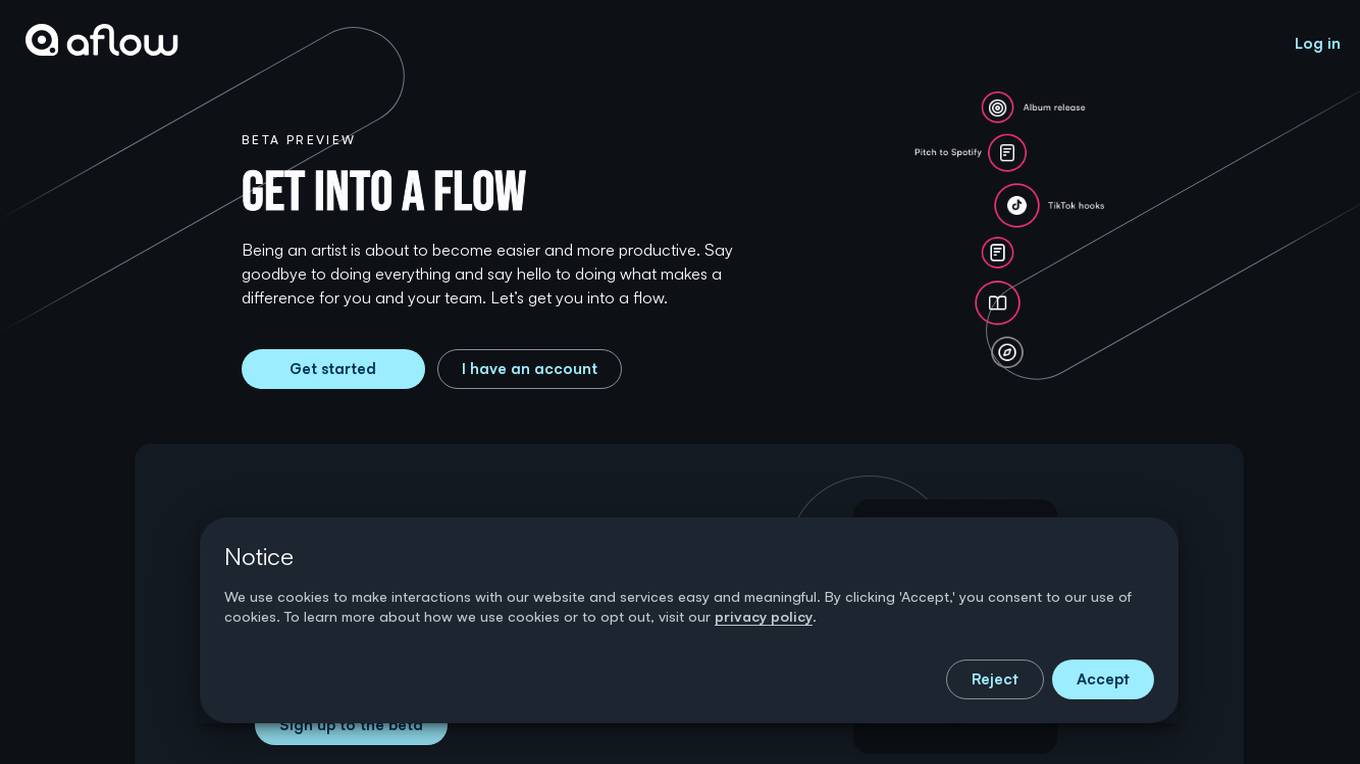
Aflow
Aflow is an AI-driven service designed to help artists enhance their productivity and creativity. It aims to simplify the artistic process by enabling users to focus on what truly matters, such as developing skills, creating content, and achieving goals. With Aflow, users can get into a flow state where they can be more efficient and effective in their work. The platform provides a supportive environment for artists to grow and succeed, offering a range of features to inspire and motivate them.
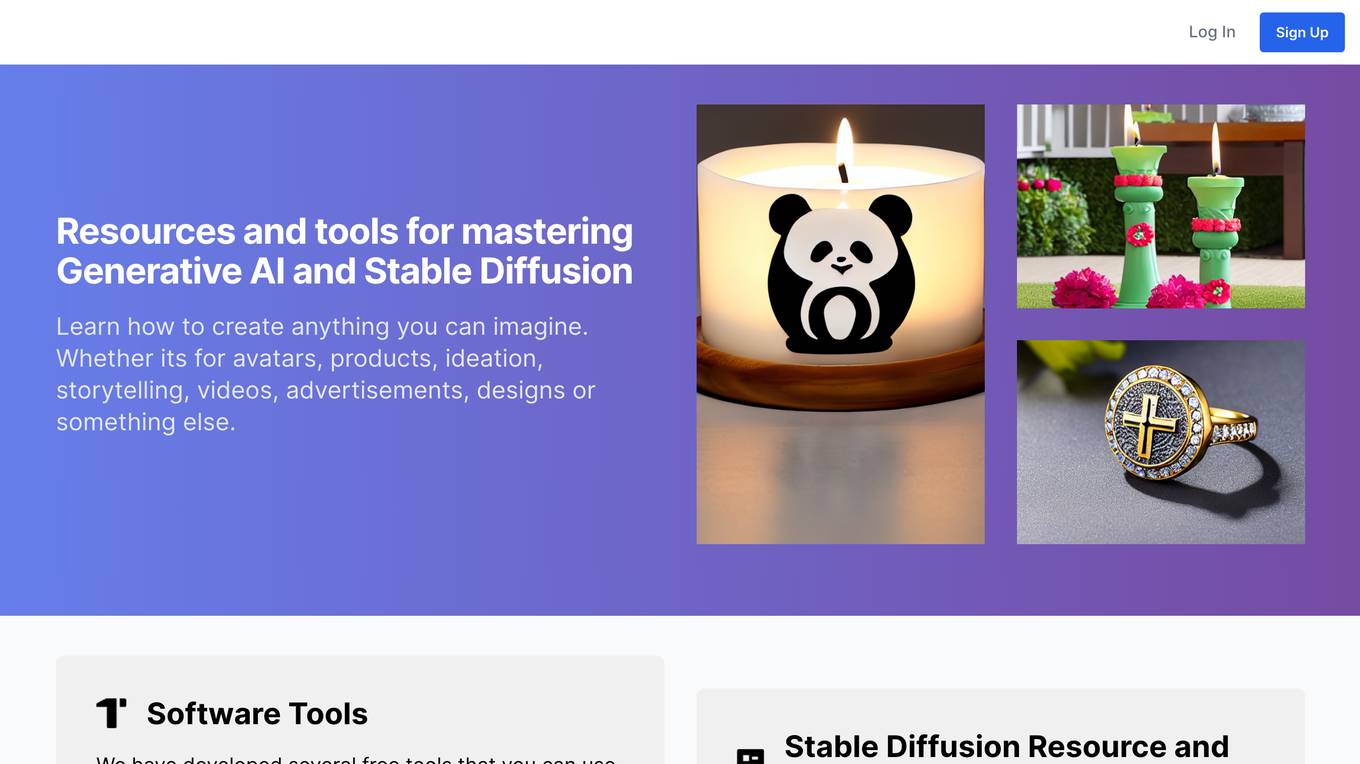
88stacks
88stacks is a website that provides resources and tools for mastering Generative AI and Stable Diffusion. It offers a variety of software tools, tutorials, and databases to help users create and understand generative AI images. The website also publishes free designs and concepts created using generative AI.

Google Research
Google Research is a team of scientists and engineers working on a wide range of topics in computer science, including artificial intelligence, machine learning, and quantum computing. Our mission is to advance the state of the art in these fields and to develop new technologies that can benefit society. We publish hundreds of research papers each year and collaborate with researchers from around the world. Our work has led to the development of many new products and services, including Google Search, Google Translate, and Google Maps.
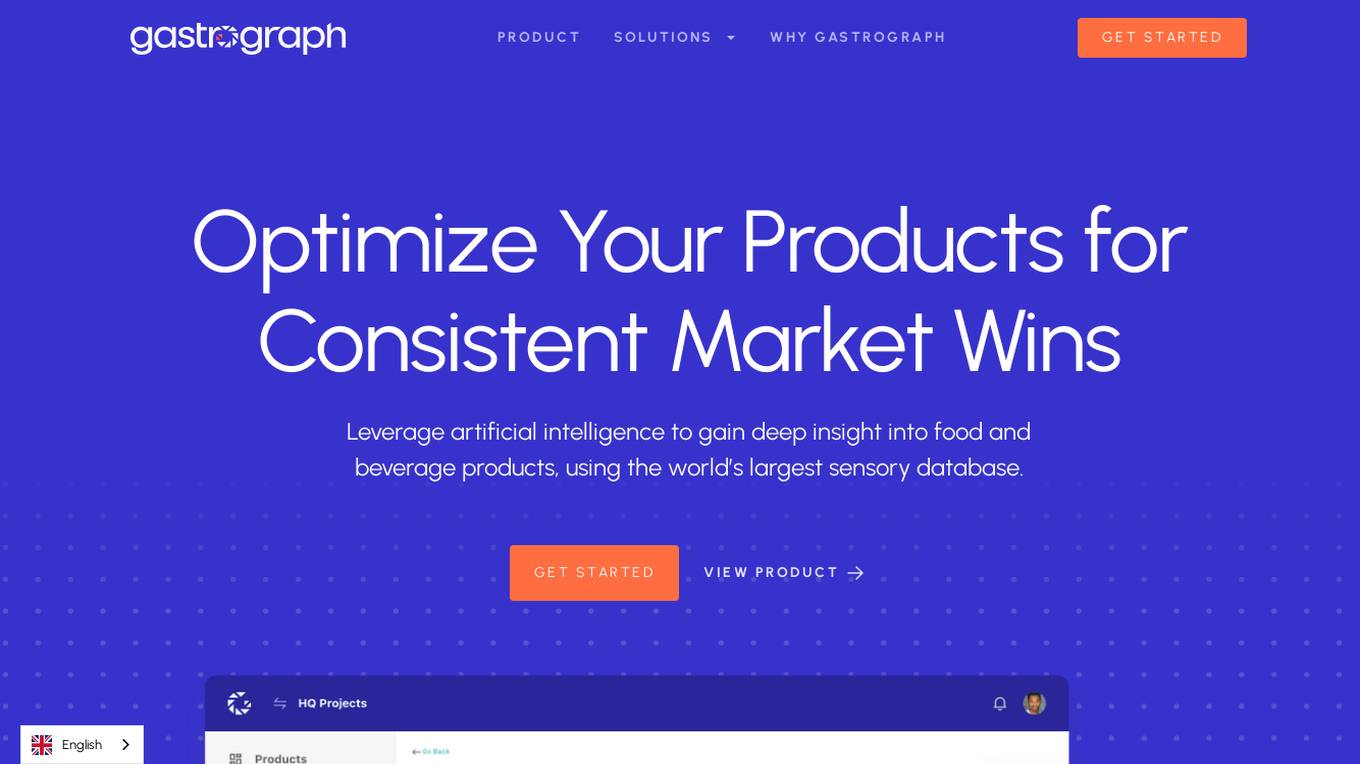
Gastrograph AI
Gastrograph AI is a cutting-edge artificial intelligence platform that empowers food and beverage companies to optimize their products for consistent market success. Leveraging the world's largest sensory database, Gastrograph AI provides deep insights into consumer preferences, enabling companies to develop new products, enter new markets, and optimize existing products with confidence. With Gastrograph AI, companies can reduce time to market costs, simplify product development, and gain access to trustworthy insights, leading to measurable results and a competitive edge in the global marketplace.
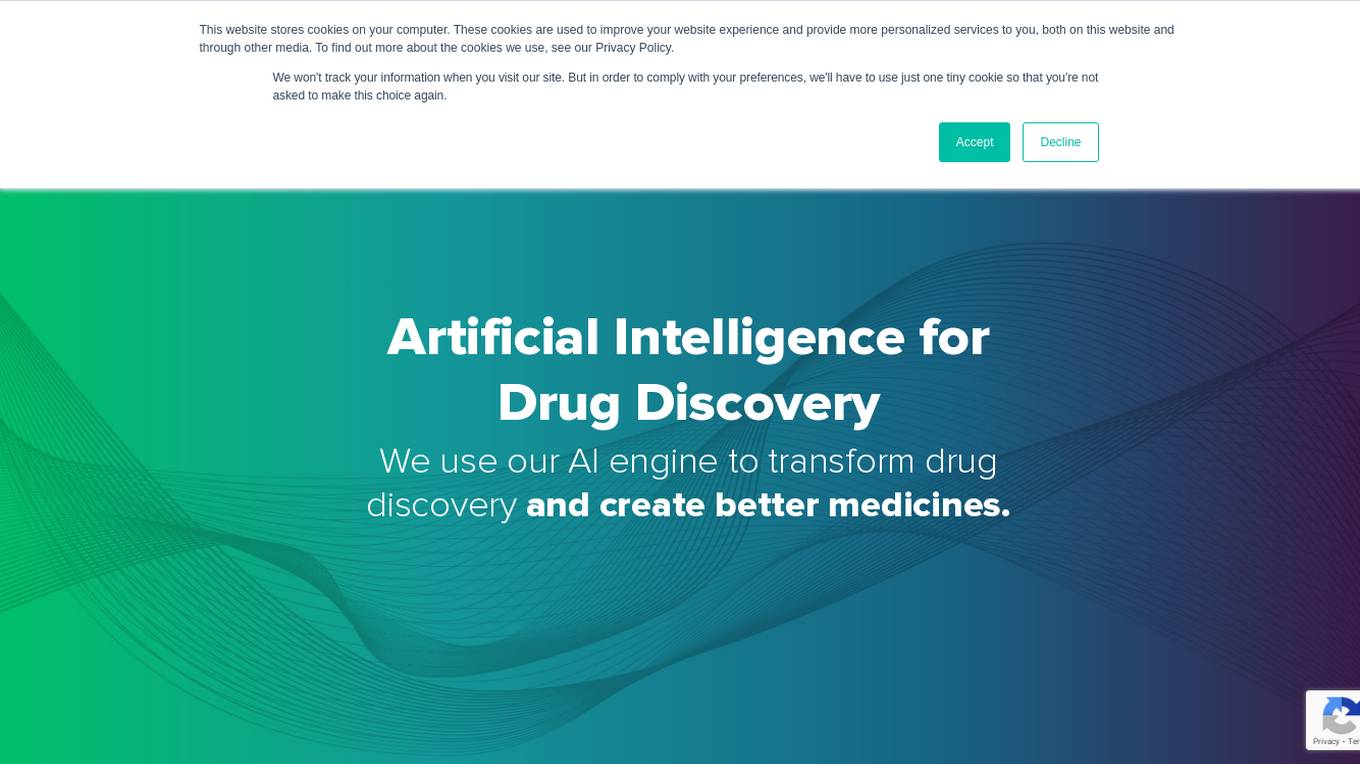
Atomwise
Atomwise is an artificial intelligence (AI)-driven drug discovery company that uses machine learning to discover and develop new small molecule medicines. The company's AI engine combines the power of convolutional neural networks with massive chemical libraries to identify new drug candidates. Atomwise has a wholly owned pipeline of drug discovery programs and also partners with other pharmaceutical companies to co-develop drugs. The company's investors include prominent venture capital firms and pharmaceutical companies.
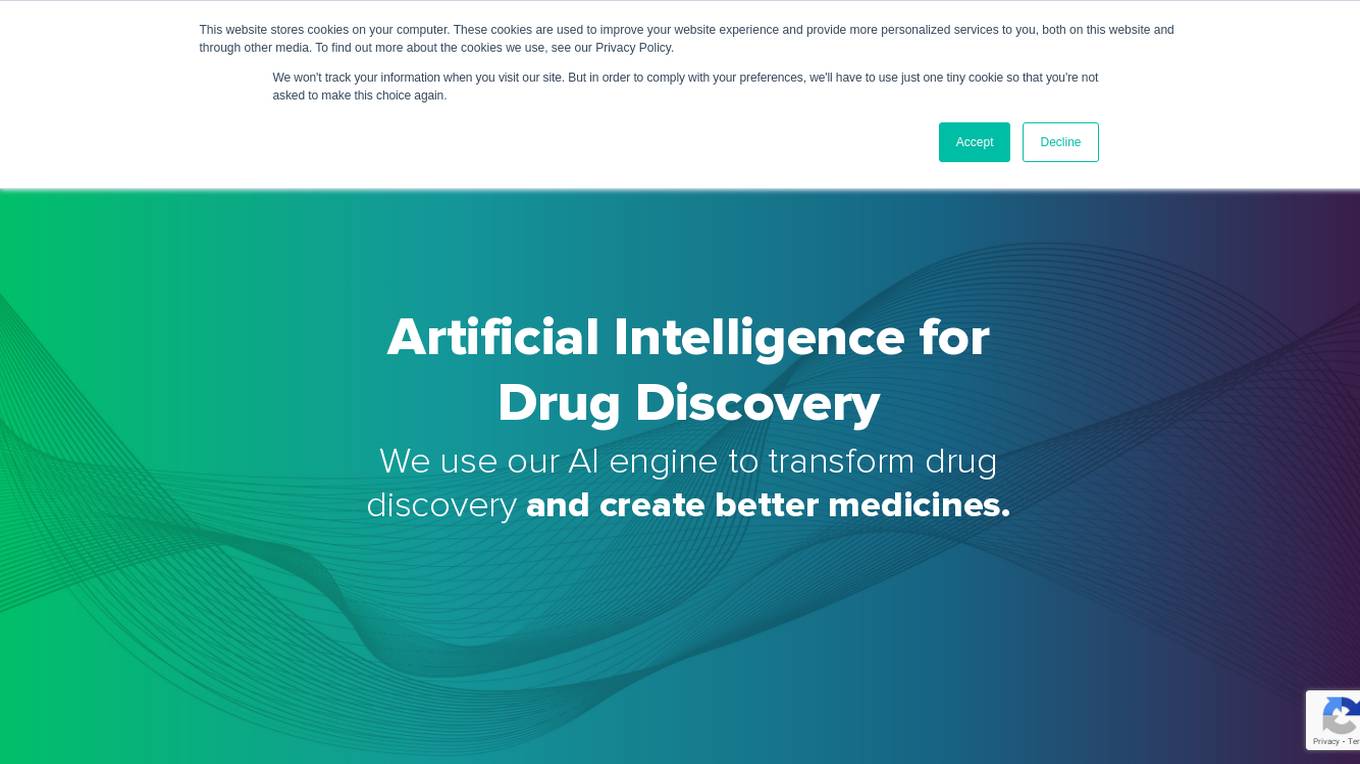
Atomwise
Atomwise is an AI-powered drug discovery company that uses machine learning to identify new small molecule medicines. The company's platform combines the power of convolutional neural networks with massive chemical libraries to discover new drug candidates. Atomwise has a portfolio of wholly owned and co-developed pipeline assets, and is backed by prominent investors.
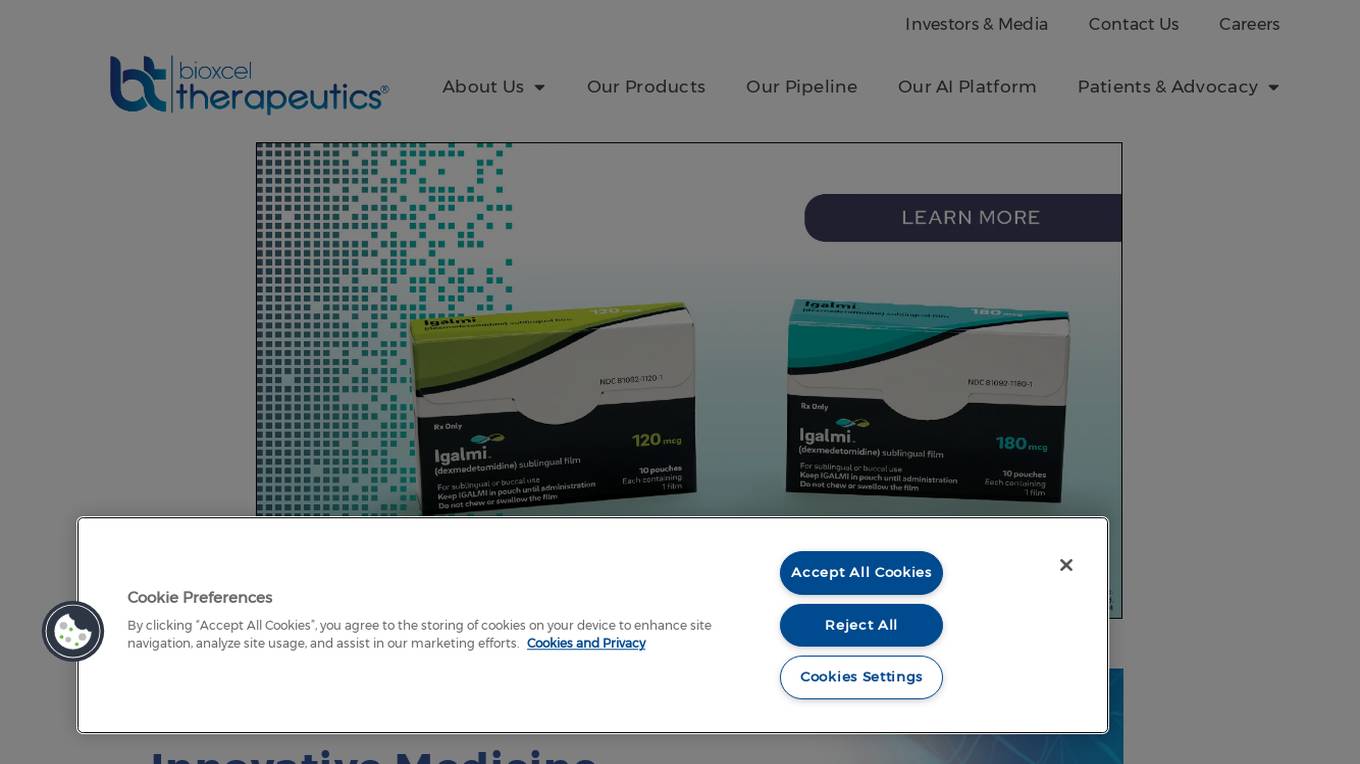
BioXcel Therapeutics
BioXcel Therapeutics, Inc. is a clinical-stage biopharmaceutical company developing transformative medicines in neuroscience and immuno-oncology utilizing artificial intelligence, or AI, techniques. The company's proprietary AI platform is used to identify, re-innovate, and develop potential new therapies. BioXcel Therapeutics has a pipeline of product candidates in various stages of development, including BXCL501 for agitation in dementia, BXCL701 for cocaine use disorder, and BXCL801 for acute suicidal ideation and behavior in patients with major depressive disorder.
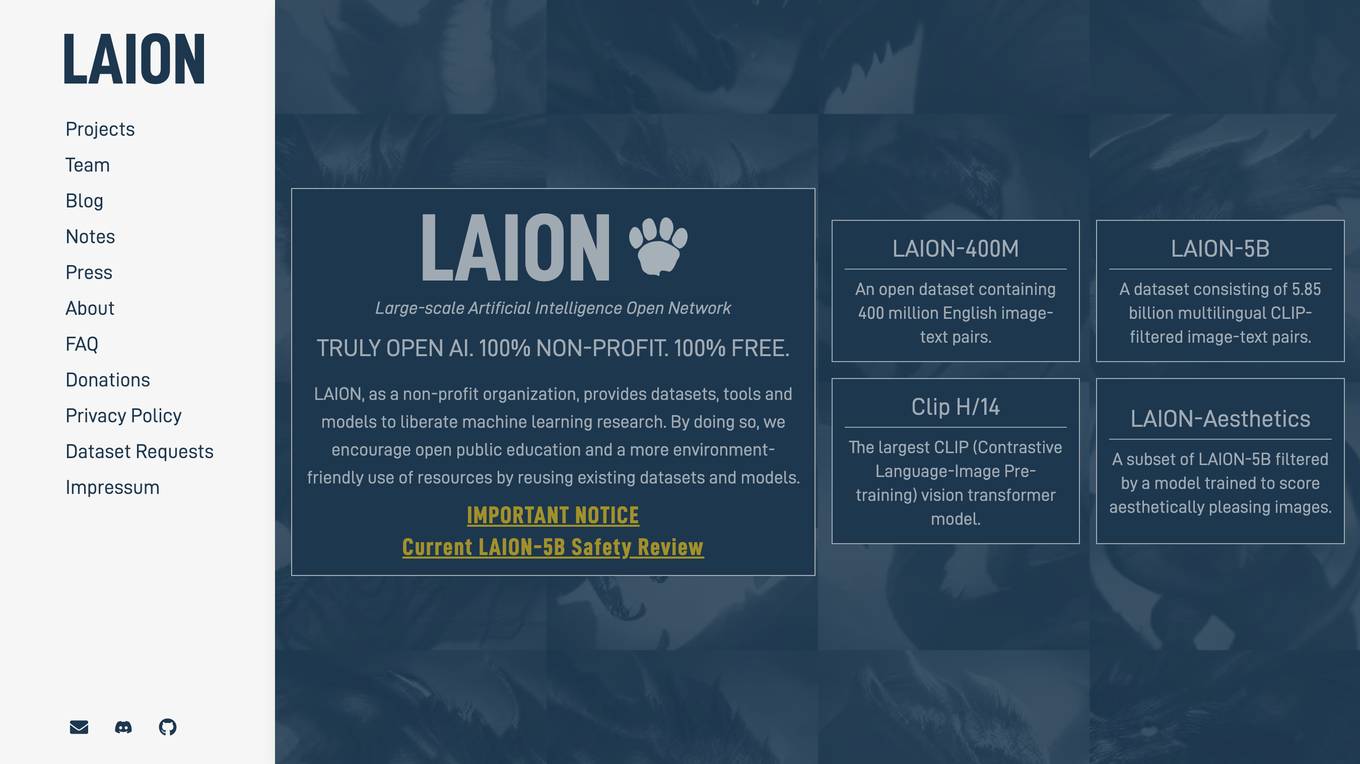
LAION
LAION is a non-profit organization that provides datasets, tools, and models to advance machine learning research. The organization's goal is to promote open public education and encourage the reuse of existing datasets and models to reduce the environmental impact of machine learning research.
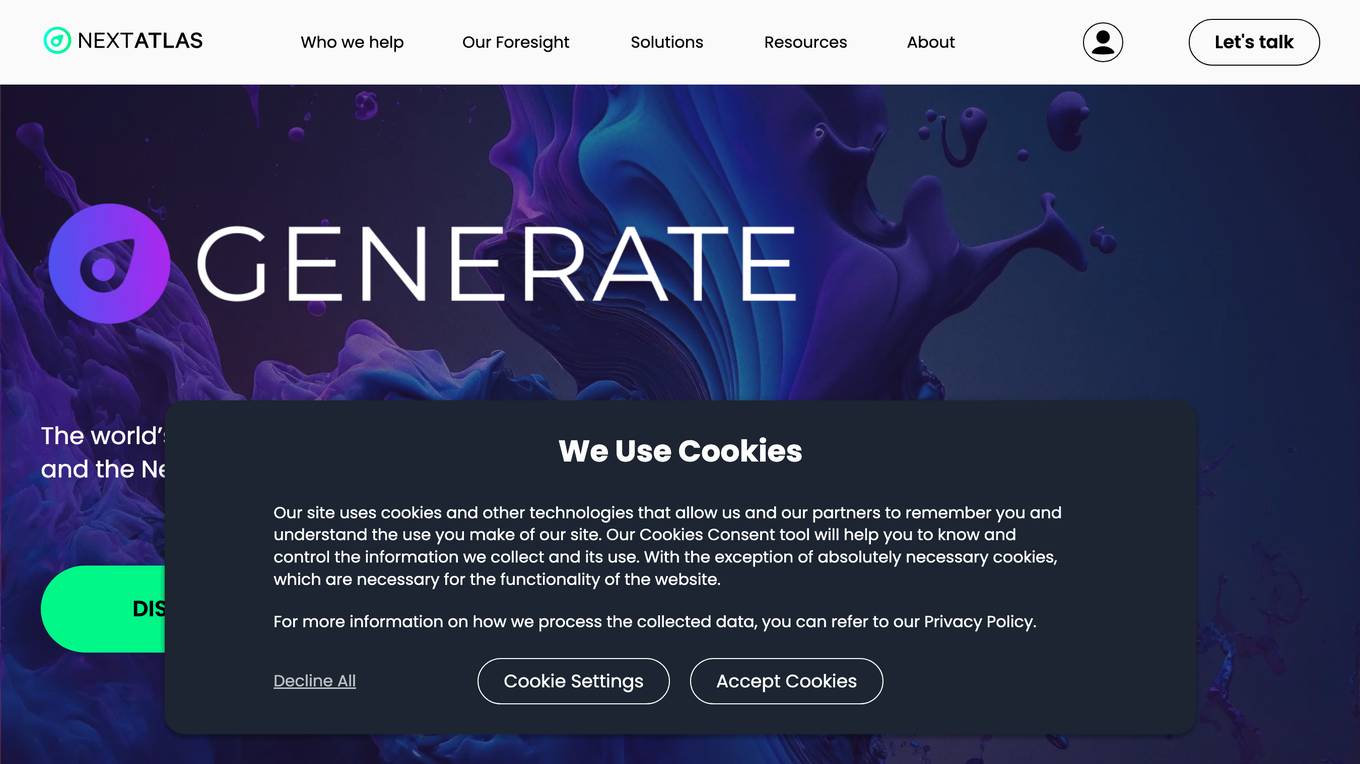
Nextatlas
Nextatlas is an AI-powered trend forecasting service that helps businesses understand, innovate, launch, make, and win. It provides data-rich trend prediction built through analysis on the interests and behaviors from the consumers that drive change, experts, and innovators. Nextatlas' AI can quickly be tailored to your specific business challenges and uncover attractive business opportunities. It brings you to findings that represent what will happen in the future, that you cannot know when you begin searching.
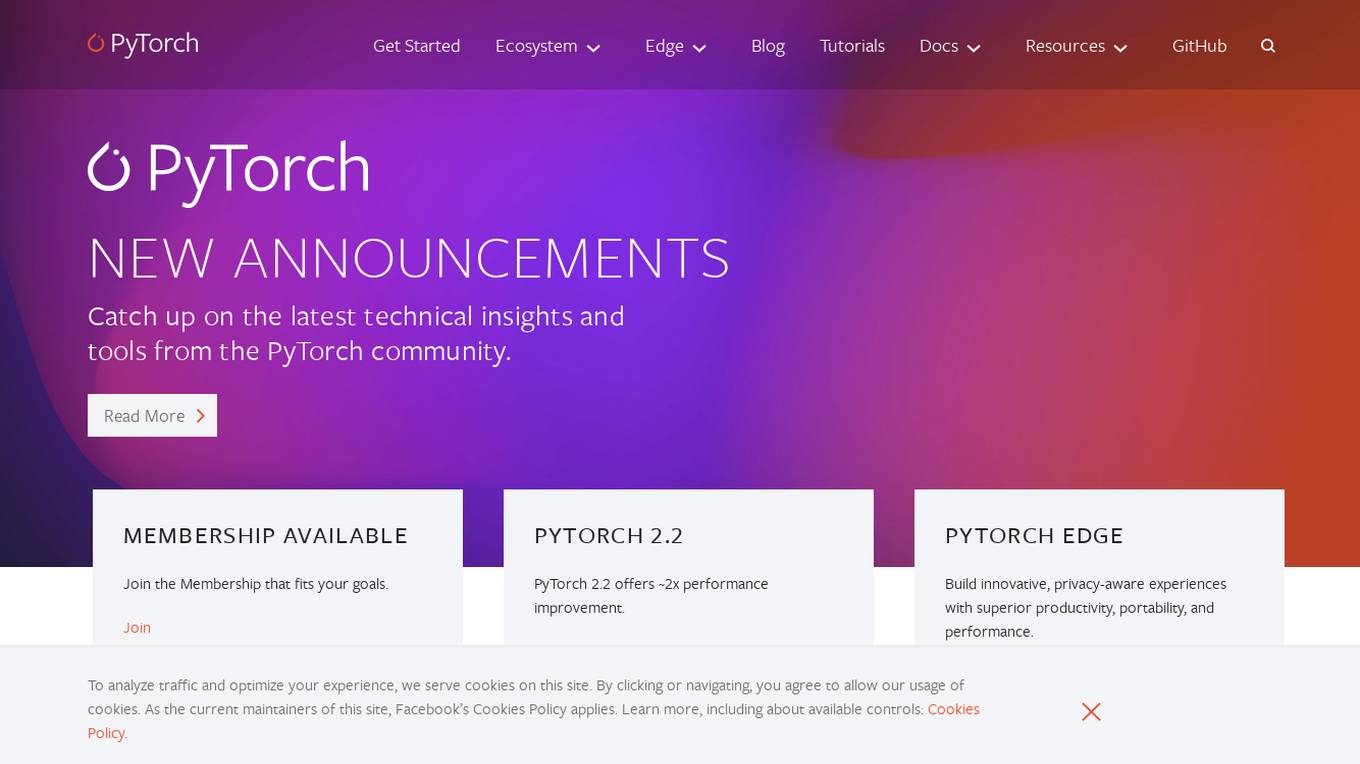
PyTorch
PyTorch is an open-source machine learning library based on the Torch library. It is used for applications such as computer vision, natural language processing, and reinforcement learning. PyTorch is known for its flexibility and ease of use, making it a popular choice for researchers and developers in the field of artificial intelligence.
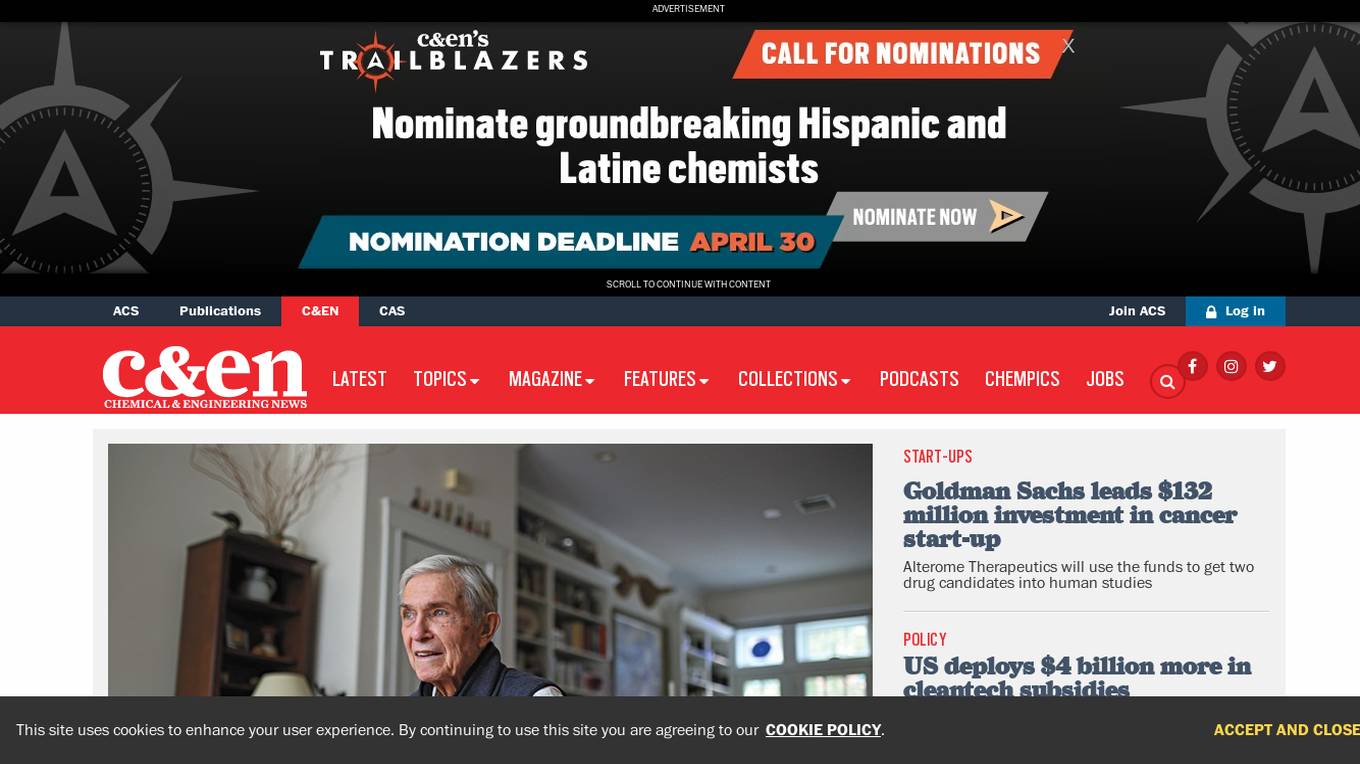
C&EN
C&EN, a publication of the American Chemical Society, provides the latest news and insights on the chemical industry, including research, technology, business, and policy. It covers a wide range of topics, including analytical chemistry, biological chemistry, business, careers, education, energy, environment, food, materials, people, pharmaceuticals, physical chemistry, policy, research integrity, safety, and synthesis.
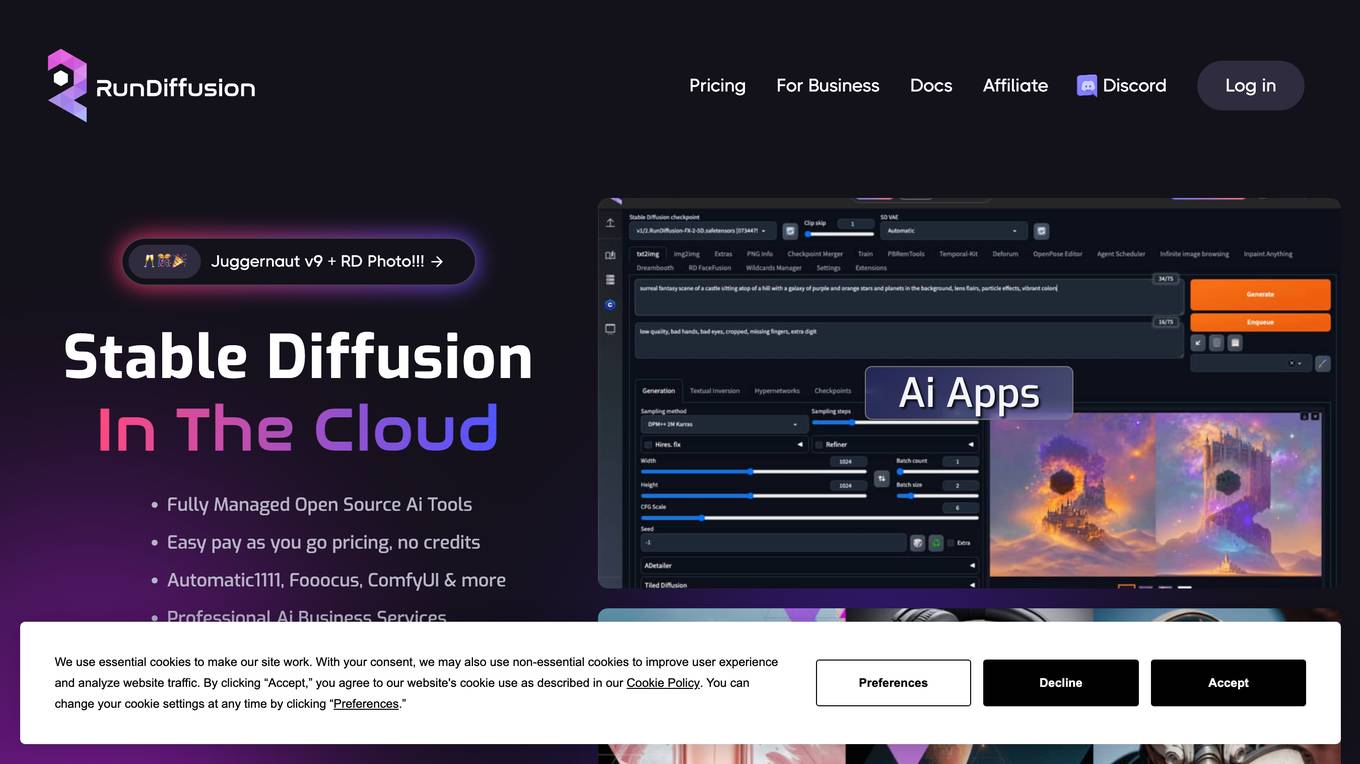
RunDiffusion
RunDiffusion is a cloud-based platform that provides access to a suite of open-source AI tools, including Automatic1111, Fooocus, ComfyUI, and more. These tools enable users to generate images, videos, and other creative content using artificial intelligence. RunDiffusion offers a variety of features, including a user-friendly interface, a wide range of models to choose from, and the ability to collaborate with other users. The platform is suitable for both hobbyists and professionals, and it can be used for a variety of tasks, such as creating marketing materials, generating product ideas, and developing new artistic concepts.
0 - Open Source AI Tools
20 - OpenAI Gpts
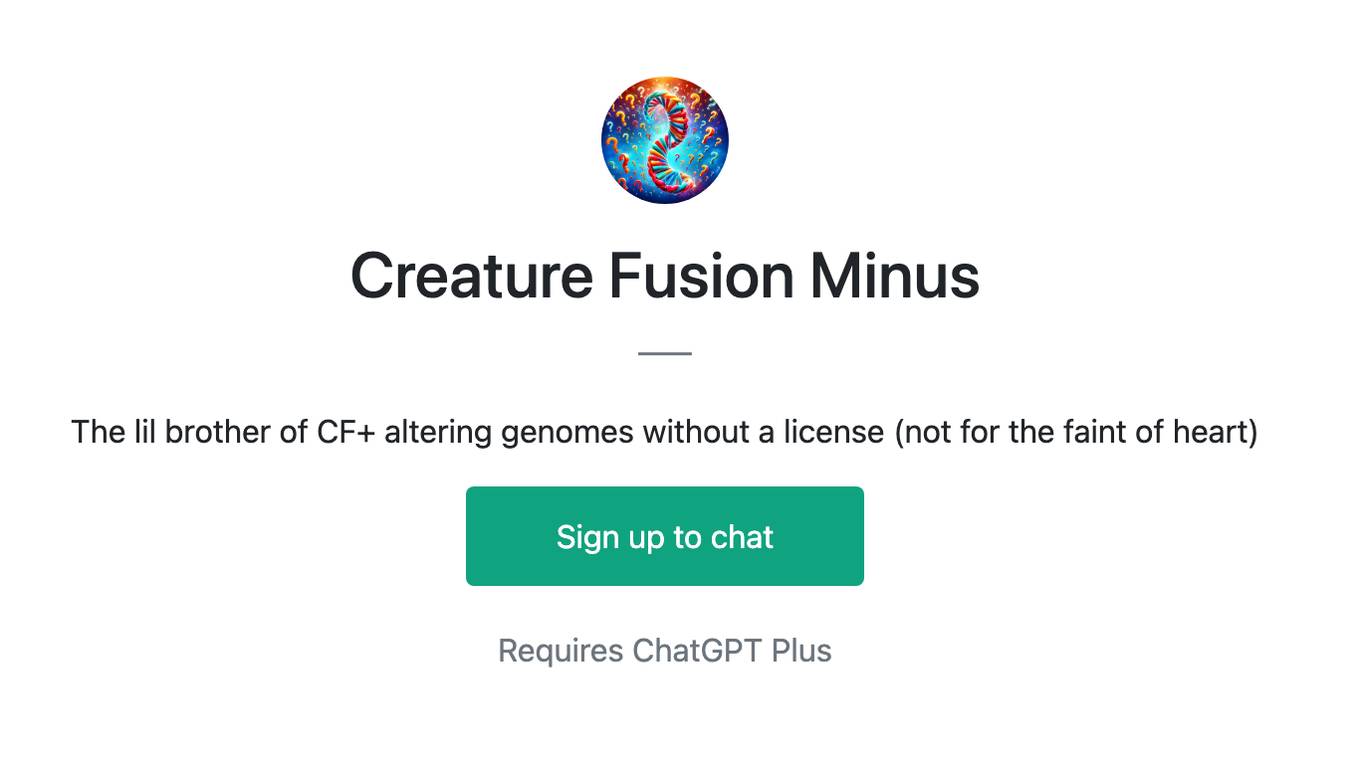
Creature Fusion Minus
The lil brother of CF+ altering genomes without a license (not for the faint of heart)
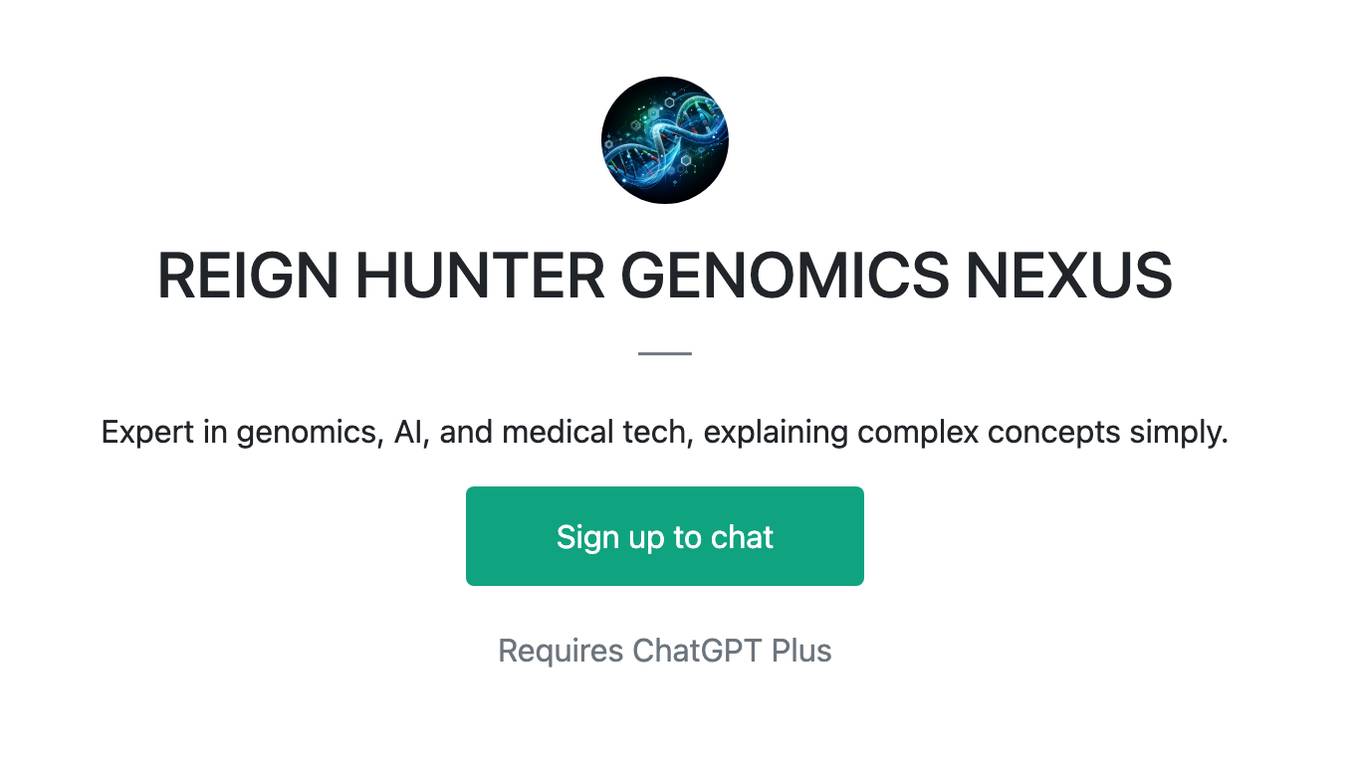
REIGN HUNTER GENOMICS NEXUS
Expert in genomics, AI, and medical tech, explaining complex concepts simply.
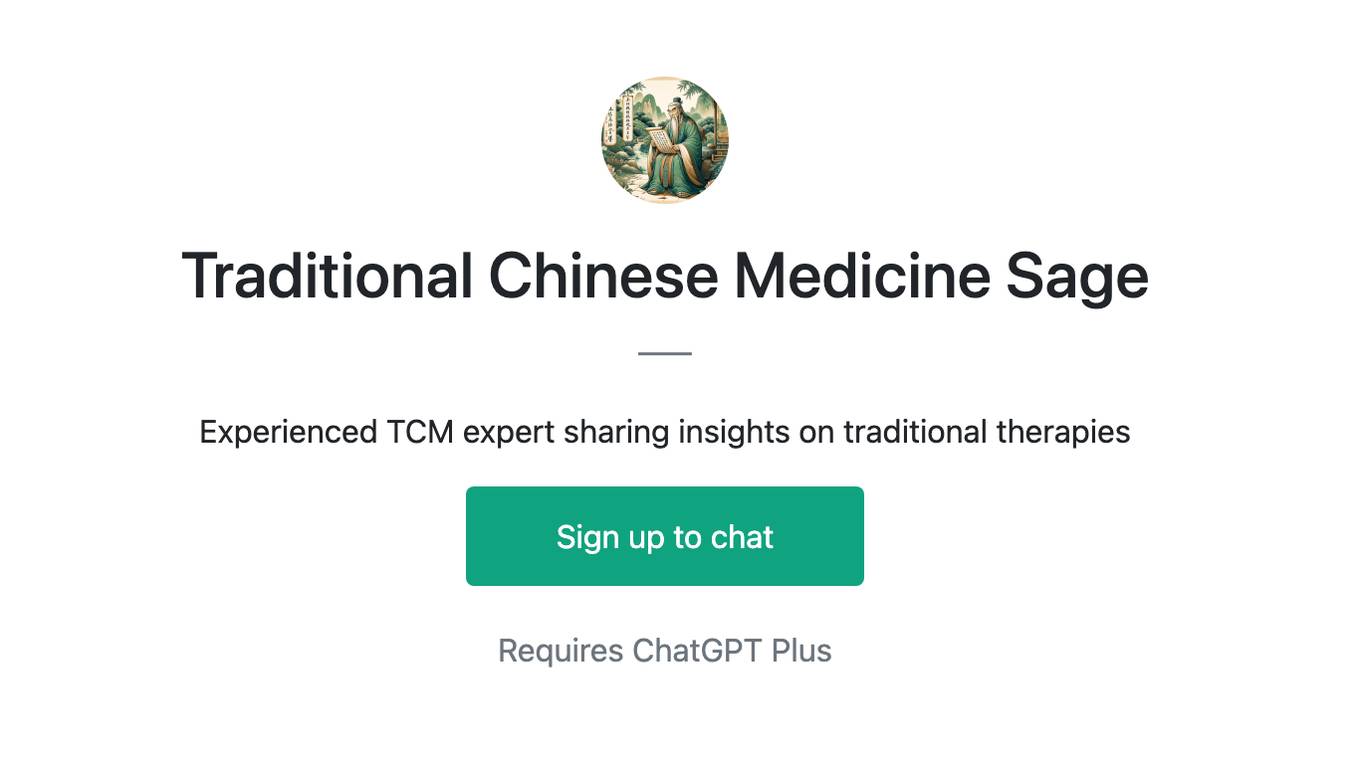
Traditional Chinese Medicine Sage
Experienced TCM expert sharing insights on traditional therapies
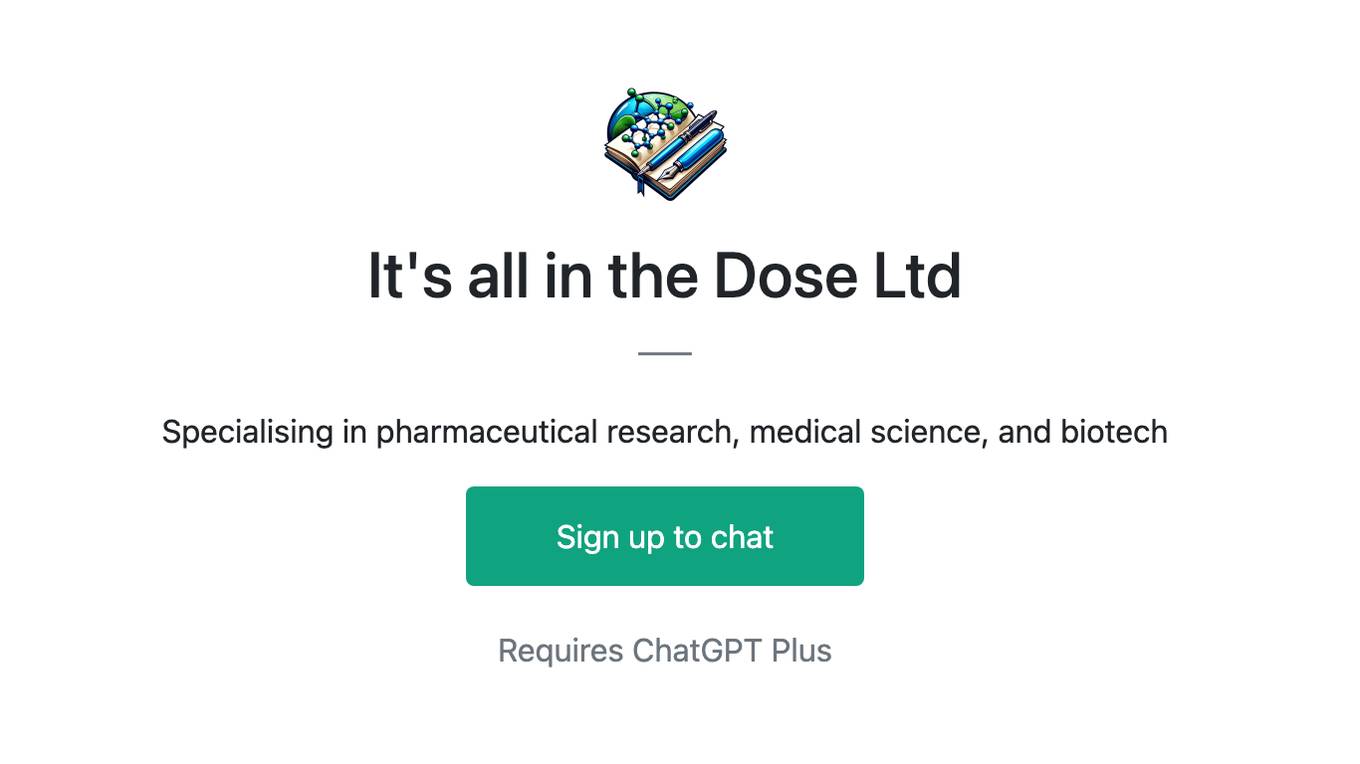
It's all in the Dose Ltd
Specialising in pharmaceutical research, medical science, and biotech
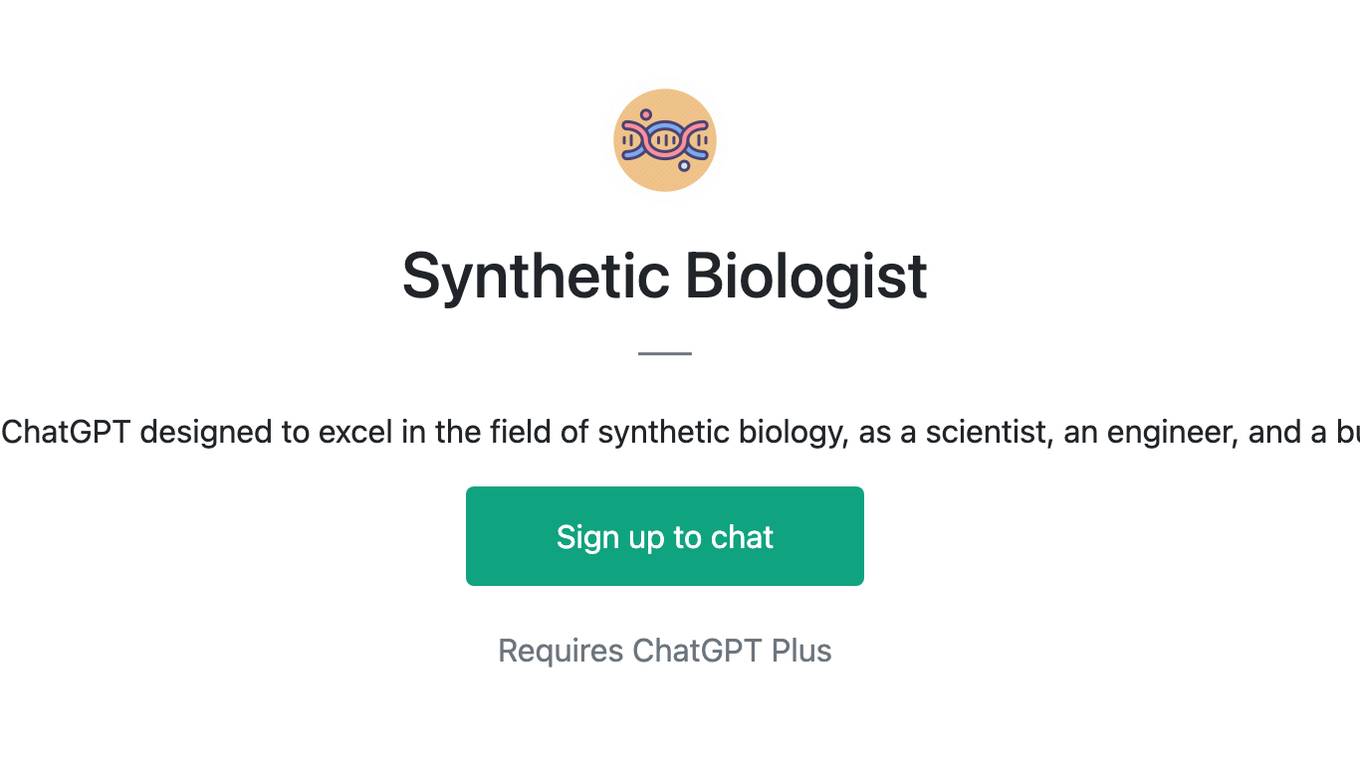
Synthetic Biologist
A customized ChatGPT designed to excel in the field of synthetic biology, as a scientist, an engineer, and a business man

Biomedical Engineering Expert
Your personal biomedical engineer. Create anything related to BME.
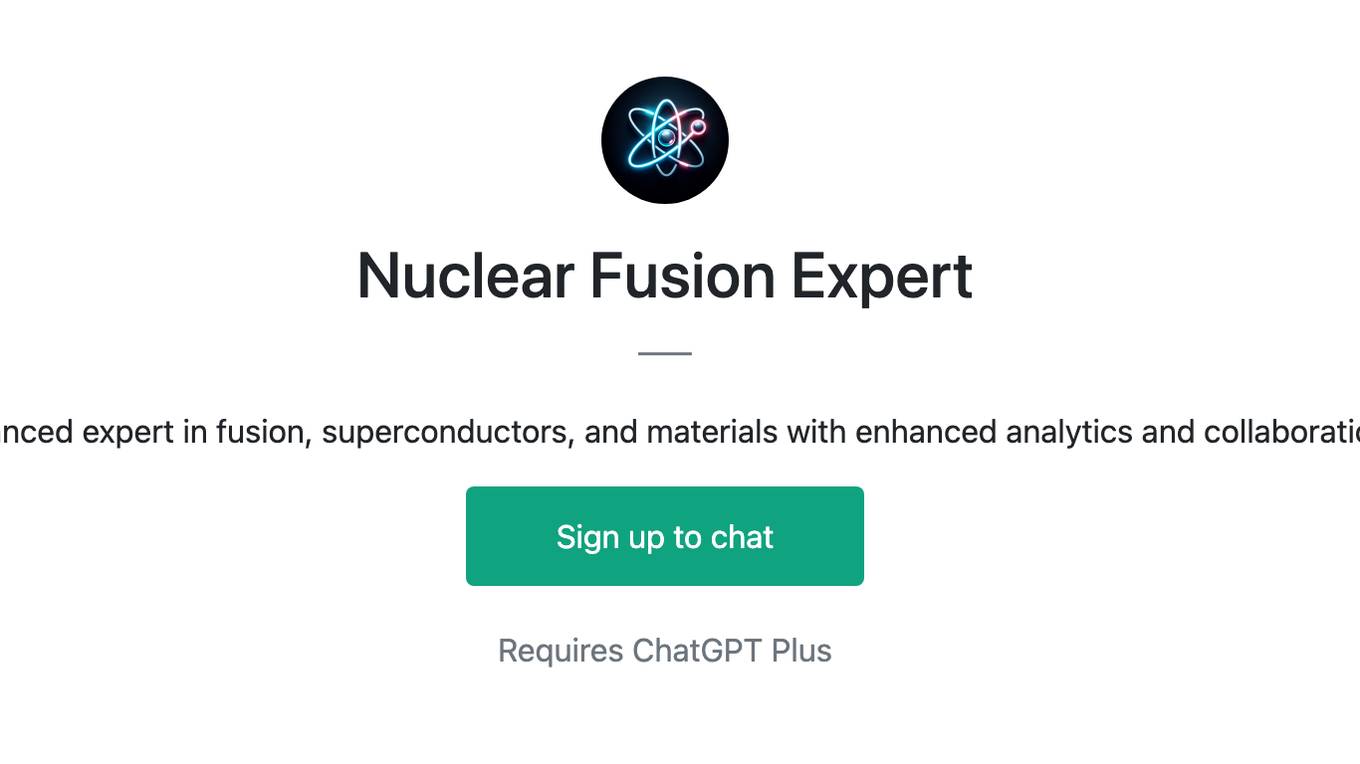
Nuclear Fusion Expert
Advanced expert in fusion, superconductors, and materials with enhanced analytics and collaboration.
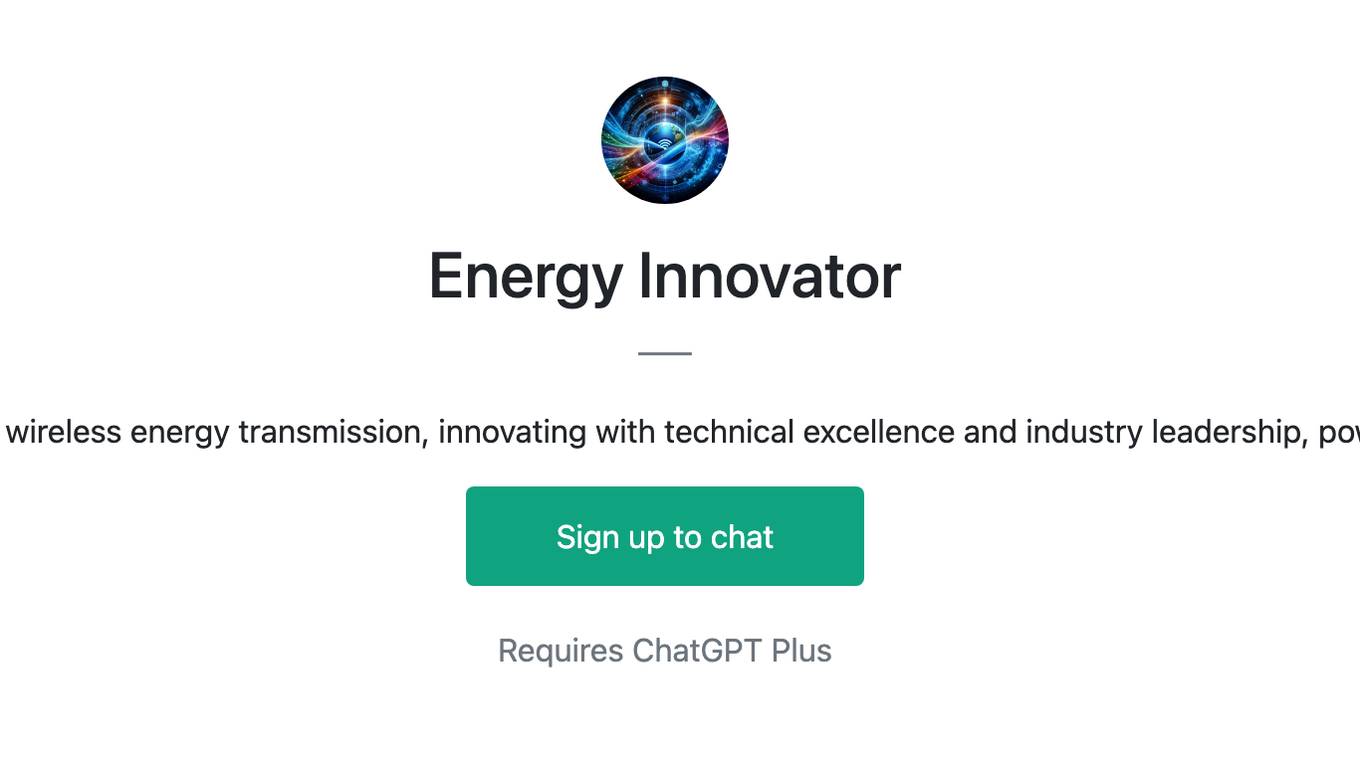
Energy Innovator
Advanced expert in wireless energy transmission, innovating with technical excellence and industry leadership, powered by OpenAI.
